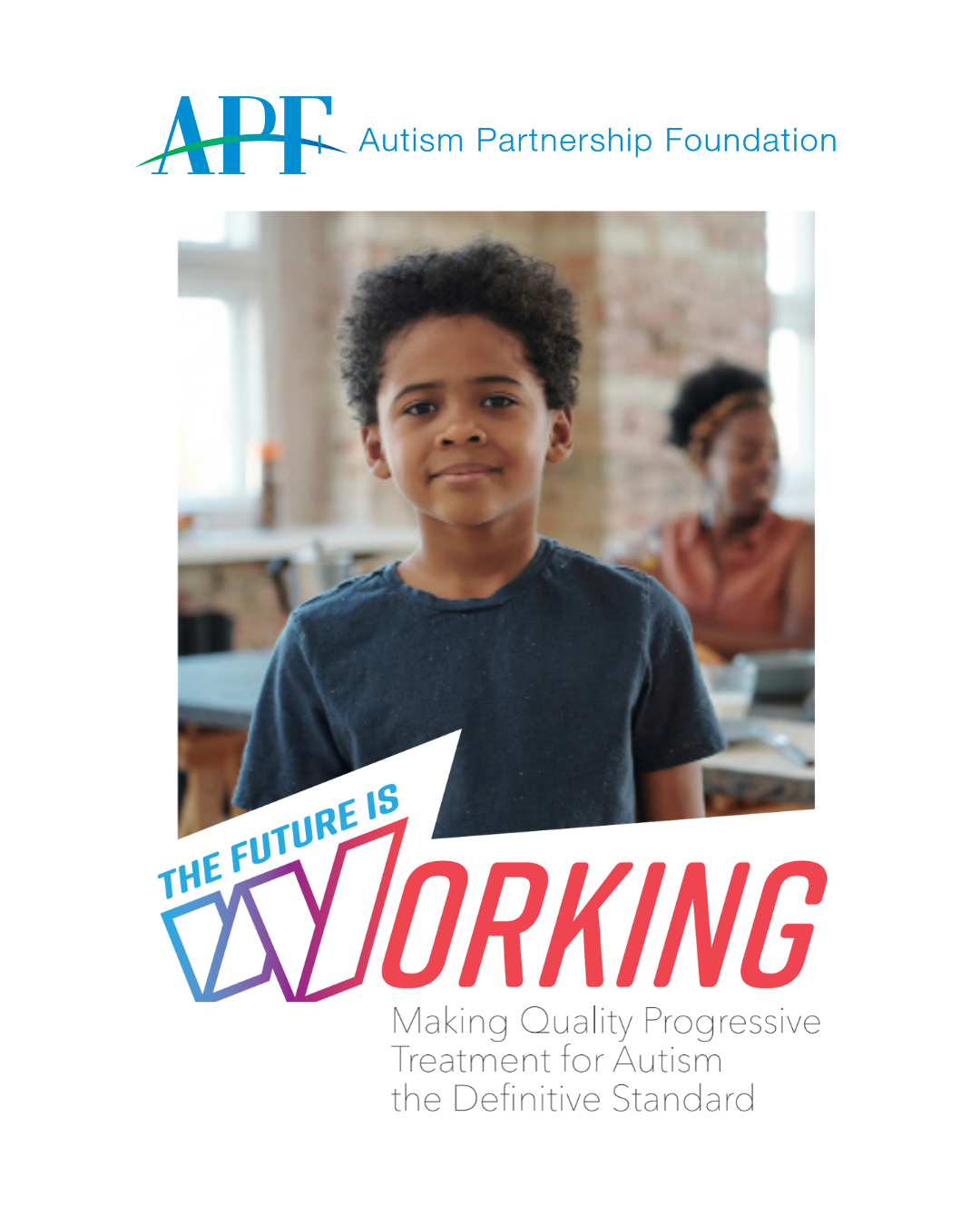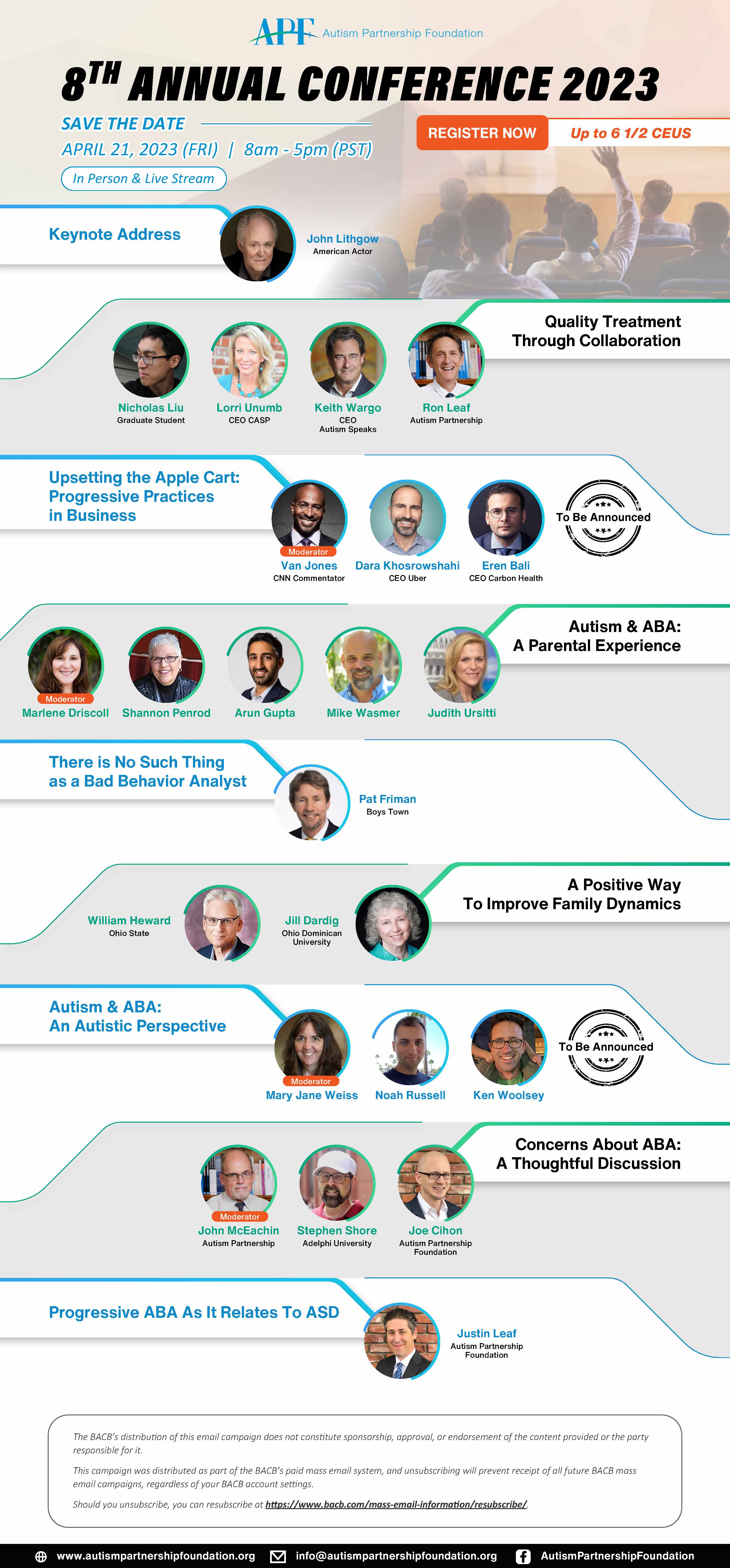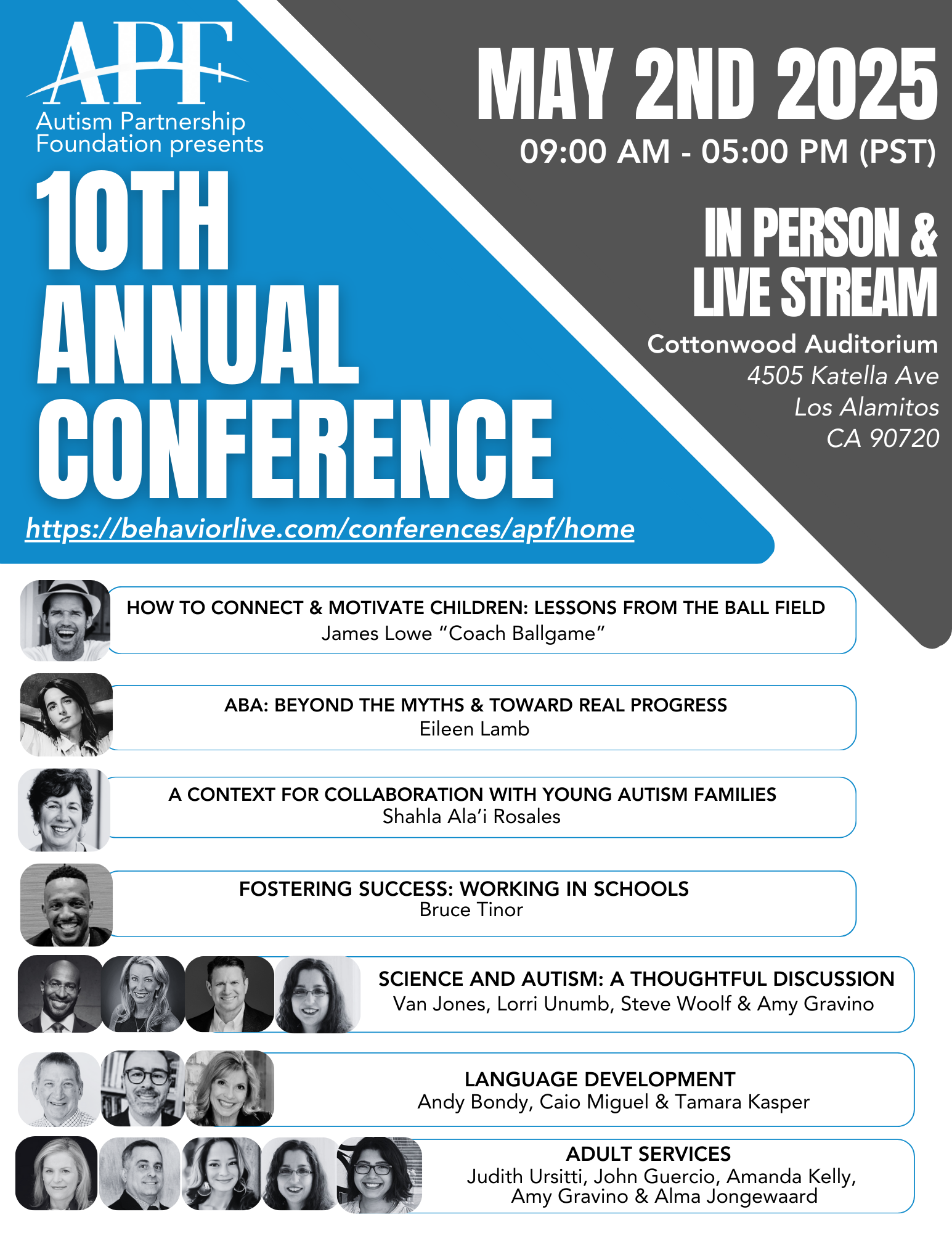A recently published study from APF’s research team has been featured as the Association for Behavior Analysis International’s (ABAI) article of the week!
Comparing Error Correction to Errorless Learning: A Randomized Clinical Trial
Justin B. Leaf & Joseph H. Cihon & Julia L. Ferguson & Christine M. Milne & Ronald Leaf & John McEachin
Abstract: Errorless learning and error correction procedures are commonly used when teaching tact relations to individuals diagnosed with autism spectrum disorder (ASD). Research has demonstrated the effectiveness of both procedures, as well as compared them. The majority of these studies have been completed through the use of single-subject experimental designs. Evaluating both procedures using a group design may contribute to the literature and help disseminate research related to the behavioral science of language to a larger audience. The purpose of the present study was to compare an errorless learning procedure to an error correction procedure to teach tact relations to 28 individuals diagnosed with ASD through a randomized clinical trial. Several variables were assessed, including the number of stimulus sets with which participants reached the mastery criterion, responding during pre- and postprobes, responding during teaching, efficiency, and the presence of aberrant behavior. The results indicated that both procedures were effective, efficient, and unlikely to evoke aberrant behavior, despite participants in the error correction condition engaging in significantly more independent correct responses and independent incorrect responses.
Comparing Error Correction to Errorless
Learning: A Randomized Clinical Trial
Visit the ABAI Facebook page for more information.









